| Las tandas del principal | |
|---|---|
| Produced by | Fernando de Fuentes |
Release date |
|
| Country | Mexico |
| Language | Spanish |
Las tandas del principal ("The Batches of the Principal") is a 1949 Mexican film. It was produced by Fernando de Fuentes.

Hernán Cortés de Monroy y Pizarro Altamirano, 1st Marquess of the Valley of Oaxaca was a Spanish conquistador who led an expedition that caused the fall of the Aztec Empire and brought large portions of what is now mainland Mexico under the rule of the king of Castile in the early 16th century. Cortés was part of the generation of Spanish explorers and conquistadors who began the first phase of the Spanish colonization of the Americas.
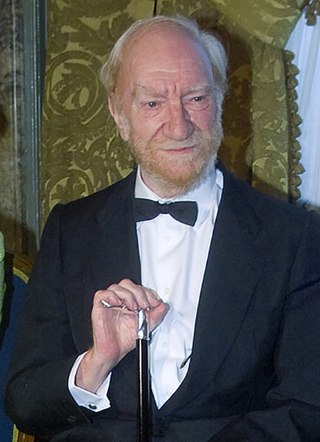
Fernando Fernández GómezOAXS, MMT better known as Fernando Fernán Gómez was a Spanish actor, screenwriter, film director, theater director, novelist, and playwright. Prolific and outstanding in all these fields, he was elected member of the Royal Spanish Academy in 1998. He was born in Lima, Peru while his mother, Spanish actress Carola Fernán-Gómez, was making a tour in Latin America. He would later use her surname for his stage name when he moved to Spain in 1924.

Maria del Pilar Cordero, better known as Mapy Cortés, was a Puerto Rican actress who participated in many films during the Golden Age of Mexican cinema, where she became one of the industry's most beloved and bankable stars of the 1940s.

Fernando León y Castillo, Marqués del Muni was a Spanish politician and diplomat, he decided on an intervention of Spain and North Africa.

The Academy of Cinematographic Arts and Sciences of Spain is a professional organisation dedicated to the promotion and development of Spanish cinema. Founded in 1986, it is responsible for the annual Goya Awards, Spain's principal film awards. It is headquartered in Madrid.

Agustín González Martínez was a Spanish actor who appeared in more than 180 films, including El nido (1980), by Jaime de Armiñan; Volver a empezar (1981), by José Luis Garci; La colmena (1982), by Mario Camús; Dos mejor que uno (1984), by Ángel Llorente and Las bicicletas son para el verano (1984), by Fernando Fernán Gómez.

Fernando Soler was a Mexican actor, director, screenwriter, and producer. He was considered one of the most important figures of the Golden Age of Mexican cinema. In his career spanning over sixty years, Soler appeared as an actor in more than one hundred motion pictures.
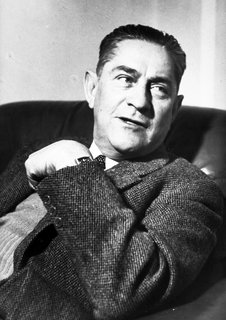
Fernando de Fuentes Carrau was a Mexican film director, considered a pioneer in the film industry worldwide. He is perhaps best known for directing the films El prisionero trece, El compadre Mendoza, and Vámonos con Pancho Villa, all part of his Revolution Trilogy on the Mexican Revolution.

Fernando "Papi" Cortés was a Puerto Rican film actor, writer and director. He was born in San Juan, Puerto Rico, but he spent most of his adult life in Mexico City, where he died. On 1932, while in New York City, Fernando Cortés married Puerto Rican childhood friend María del Pilar Cordero, who adopted the stage name of Mapy Cortés. The couple soon traveled to Spain with a Cuban theatrical troupe. They worked on the Spanish stage, radio and film until the outbreak of the Civil War in 1936. Fernando progressively began to take a backseat as actor and baritone and focused on promoting the career of his wife Mapy, who became a noted vedette in Barcelona.
La liga de las muchachas is a 1950 Mexican film. It was written by Luis Alcoriza, directed by Fernando Cortés and starred by Elsa Aguirre, Alma Rosa Aguirre, Miroslava Stern, Rosina Pagã and Conchita Carracedo.
El Camino Viejo a Los Ángeles, also known as El Camino Viejo and the Old Los Angeles Trail, was the oldest north-south trail in the interior of Spanish colonial Las Californias (1769–1822) and Mexican Alta California (1822–1848), present day California. It became a well established inland route, and an alternative to the coastal El Camino Real trail used since the 1770s in the period.
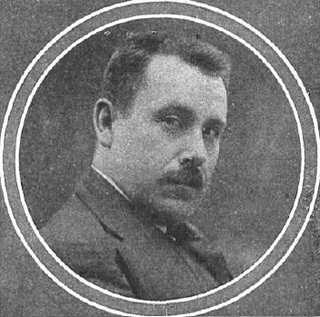
Pablo Luna Carné was a Spanish composer. His best-known composition is the aria "De España vengo" from the zarzuela El niño judío.
Mischievous Susana is a 1945 Mexican musical comedy film directed by Fernando Cortés and starring Mapy Cortés, Luis Aldás, Fortunio Bonanova and Fernando Cortés.
María del Dulce Nombre Díaz Ruiz better known as Marujita Díaz was a Spanish singer and actress. She was born in Seville, Spain. Díaz was known for presenting the very popular show Música y estrellas. She also appeared in the films A Cuban in Spain (1951) and La pérgola de las flores (1965).

The 11th TVyNovelas Awards were an academy of special awards to the best telenovelas and TV shows. The awards ceremony took place on March 29, 1993 in the Centro de Espectáculos "Premier" in Mexico D.F. The ceremony was televised in Mexico by Canal de las Estrellas.
24 horas was a Mexican television news programme broadcast from 1970 to 1998, presented by Jacobo Zabludovsky. It aired on el Canal de las Estrellas from Televisa for 27 years, starting from September 7, 1970. It was the longest running news show on Mexican TV, with almost three uninterrupted decades of broadcasting; it stopped airing on Monday, January 19, 1998, even though Zabludovsky continued working on Televisa until the year 2000. It was a very influential show, considering that it was the most watched news show in Mexico.
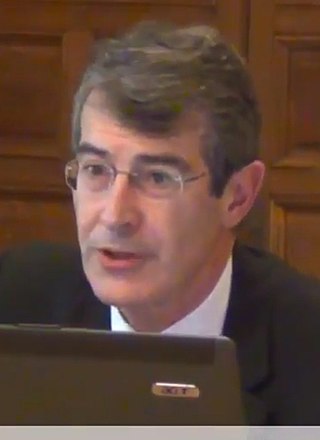
Fernando Becker Zuazúa is a Spanish economist, executive, professor and politician. He has served as minister of Economy and Finance of the Junta of Castile and León (1991–1995) and as President of the Official Credit Institute (1996–1999).

Maria of Spain was royal baby of Spain who died in infancy.
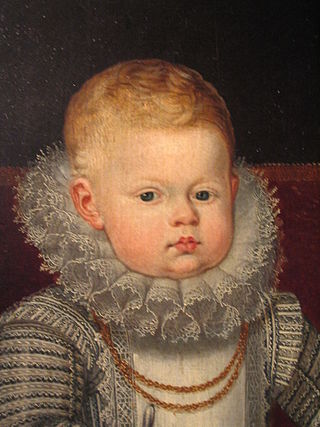
Alonso of Spain was an infante of Spain, who died in childhood.